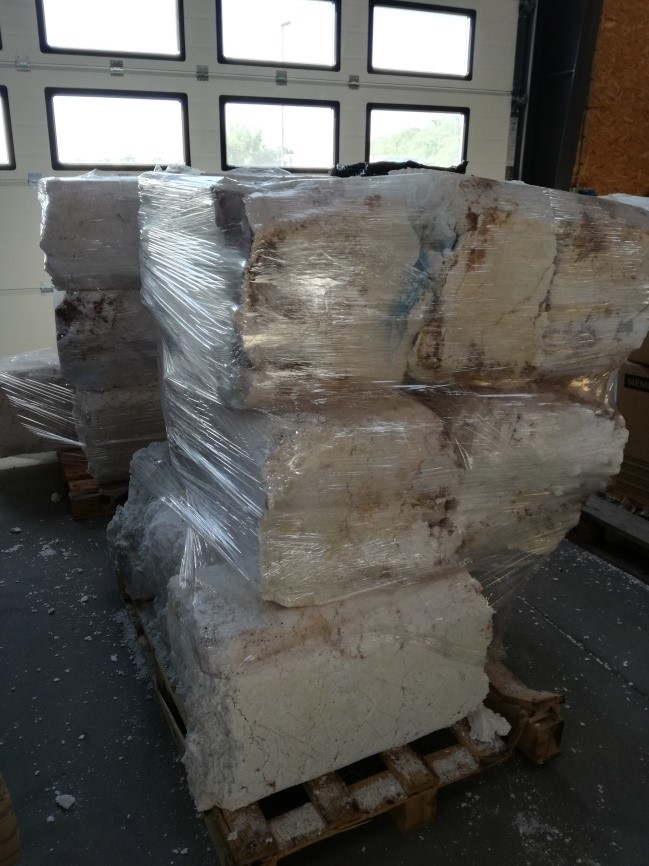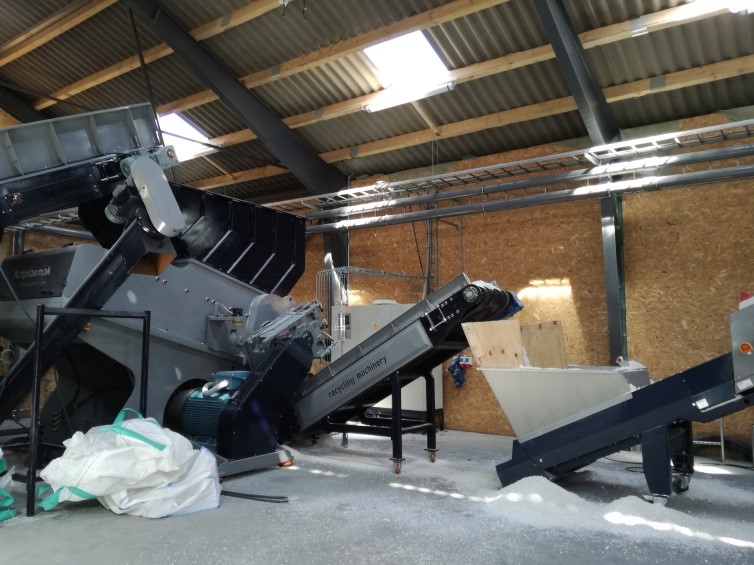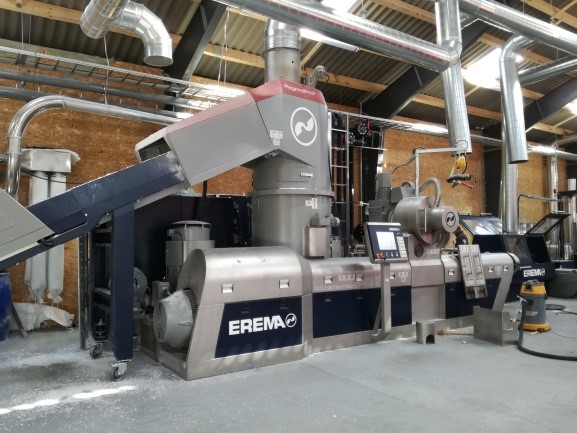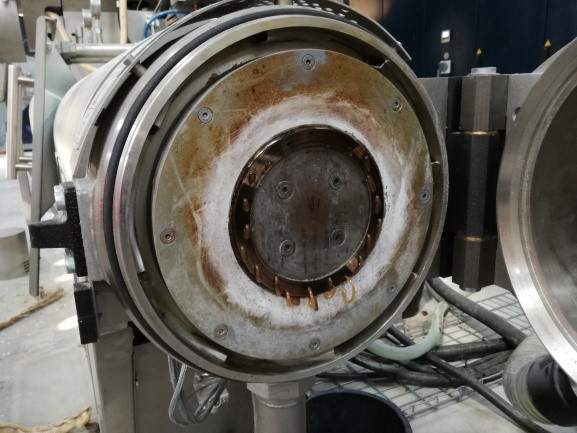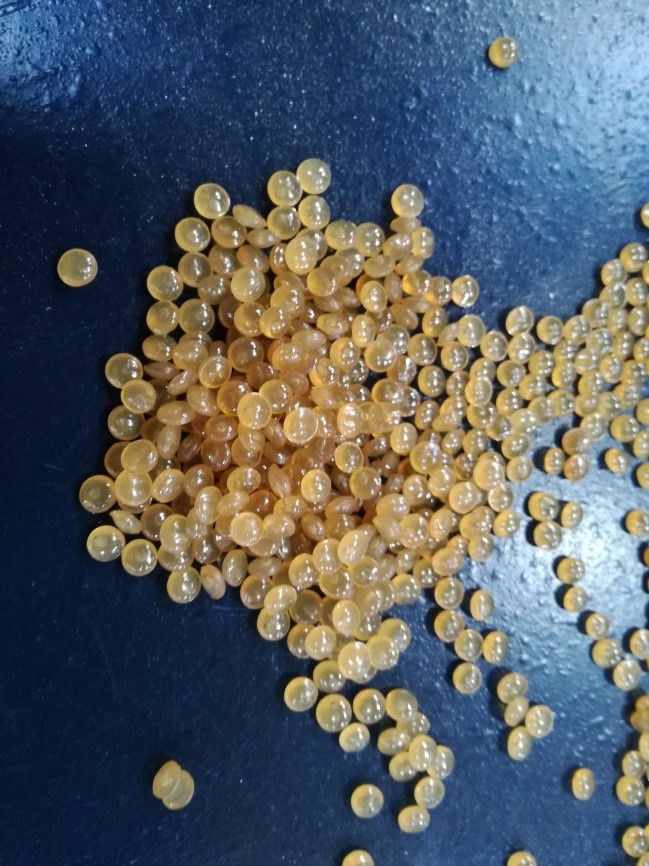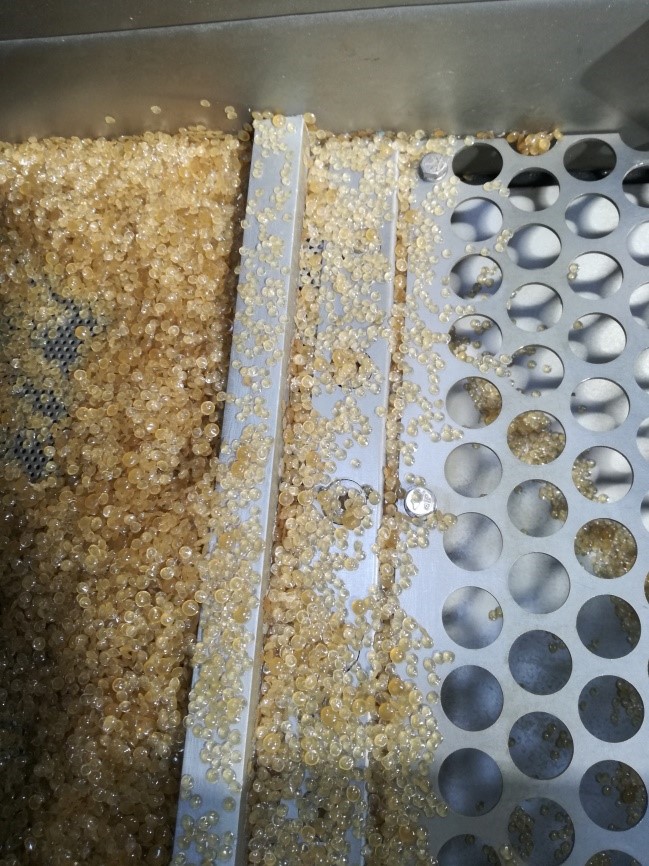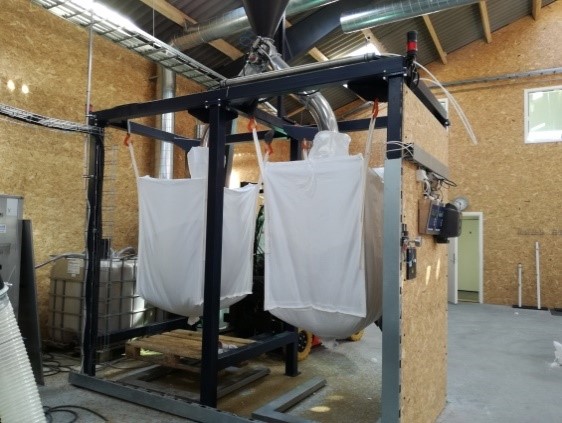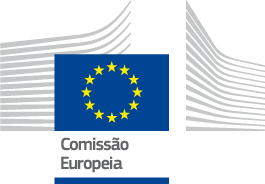

Good Practice Project
Expanded Polystyrene, or EPS, is widely used in fisheries for making fish boxes for transport. These fish boxes are only used once and therefore produce huge amounts of waste. In the Thy-Mors FLAG area, at the port of Hanstholm, one of Denmark’s largest fishing ports and home to its largest fish auction, 150 tonnes of EPS waste are generated every year, this is equivalent to 8 500 m3. In Denmark, some EPS waste is converted into insulation material, however, it has a limited added value and can be toxic when burnt. Instead, fish boxes in the FLAG area are generally compressed into large compacted cubes and transported to southern Europe to be processed.
Lars Steffensen, was involved in the collection of EPS waste from various fishing ports, which he would compress and transport to the South, when he discovered that with a special melting process, EPS can be converted into PS (Poly Styrene) pellets which have a large variety of applications (many types of plastic objects) and for which there is a strong demand from Danish industry. Seizing the opportunity to generate some real added value from EPS waste, and with a grant from the FLAG, Lars was able to find an investor to develop the first Danish EPS recycling plant for PS pellets in Thisted, about 20 km from Hanstholm.
As well as acquiring the machinery necessary for the recycling process and receiving training for his team on how to use it, Lars also partnered with Aalborg University to help with testing the quality of the end product and making sure it was fit for the market. The first stage of this project will involve selling the plastic pellets to manufacturers, however, Lars is already exploring the sorts of plastic products his own company could produce in the future.
The EPS recycling plant started operations in June 2018, with a capacity to process up to 4 200 tonnes of EPS per year. It is already using all 150 tonnes of EPS coming from Hanstholm port as well as EPS from other ports in Denmark and about 2 500 tonnes of EPS from the fisheries industry in neighbouring countries. The benefits of recycling of EPS more locally are both economic (one new company in the FLAG area providing 8-10 new jobs and huge reductions in transport costs) and environmental (smaller carbon footprint due to cutting out thousands of km of transport and less plastic waste generated thanks to its re-use).
The accumulation of EPS waste is a common problem in fishing ports and supply chains that transport fresh food and many FLAGs could be interested in applying similar solutions to their areas. However, the related costs are high and private investment and technical expertise need to be levered in to launch such activities.
| Total project cost | €87 000 |
|---|---|
| FLAG grant |
€87 000
|
| Beneficiary contribution |
€531 000 |
| Timeframe of implementation | From Sep 2017 to Jun 2018 |
|---|---|
| Sea Basins |
|
| Type of area |
|
| Theme |
